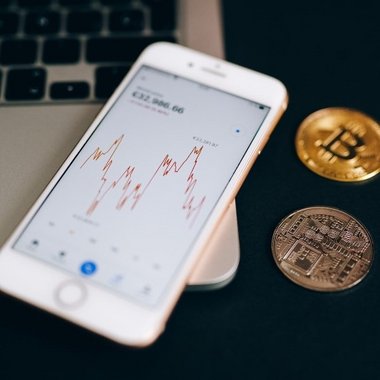
- Four minutes read
A year in the world of cryptocurrencies: Our highlights
It’s been a year since Skrill announced that wallet holders were able to buy and sell cryptocurrencies. Here are our top five news stories in the world of crypto and blockchain in the past 12 months.
For the past decade the growth of cryptocurrencies has been one of the most significant developments in payments technology. The pace of the evolution in this space isn’t slowing down any time soon; more and more businesses, consumers, and technology providers are taking a closer look at how cryptocurrencies and other applications of blockchain technology could reshape transactions and eCommerce as we know them.
Last month marked the one-year anniversary of Skrill enabling its account holders to buy and sell cryptocurrencies within the Skrill wallet, the latest Paysafe venture that provides consumers with access to an instant cryptocurrency exchange. And a year is a long time in crypto, so now seemed like a great time to review just how much the landscape has changed since the Skrill crypto product was launched.
Here are the announcements that have made the biggest waves in the cryptocurrency space in the past 12 months.
1. Facebook announces the launch of Libra Coin
Perhaps the most covered announcement in the world of crypto in 2019 to date was the news coming out of Facebook that a new global currency, named Libra, is in the works. The project has the lofty goal of enabling 1.7 billion unbanked consumers from across the globe to access eCommerce and person-to-person remittances.
With backing already secured from a number of major businesses in the crypto space, traditional finance, payments technology, and eCommerce giants, there is certainly a reasonable amount of momentum behind the project, although there a sill a significant number of questions to be answered as to how the new currency could be operated in compliance with global financial regulations such as anti-money laundering (AML) legislation.
2. Fidelity to offer institutional Bitcoin trading
In a move that signifies perhaps the greatest leap of Bitcoin to the world of mainstream trading, it has been reported that Fidelity Investments is set to offer Bitcoin trading to its 27 million institutional customers, giving professional currency traders far greater exposure to the market. Fidelity currently has over $2.4 trillion of assets under management.
Other trading brokers such as TD Ameritrade have also been linked with providing Bitcoin trading facilities to institutional clients in the near future.
3. Samsung S10 includes a crypto wallet as standard
Earlier this year Samsung launched the latest version of its flagship smartphone, the Galaxy S10, which included a cold storage cryptocurrency wallet as standard. Customers who purchase the latest product from the global market leader in smartphone technology are now able to hold selected cryptocurrencies offline, potentially leading to using this wallet for crypto payments in the future.
Private keys are held in secure storage for blockchain-enabled mobile services, meaning that the smartphone is able to run decentralised apps natively.
4. The Blockstream satellite network expands
The Blockstream satellite network, which broadcasts the Bitcoin network around the globe, has expanded its reach by increasing its number of satellites to five. This enables access to the network even in parts of the world with no internet connection.
The increased reach means that the majority of earth’s landmasses are now covered by the network, and that most of the global population now have the potential to use Bitcoin and the blockchain network wherever they are, without relying on access to any other network.
5. JP Morgan launches its own digital currency
In February this year JP Morgan became the first U.S Bank to harness the power of blockchain by creating and testing a proprietary digital coin that enables instant digital transactions between its institutional clients.
Using the JPM coin mechanism, two parties can exchange dollars digitally on a blockchain, and therefore take advantage of the benefits blockchain provides; namely instant, secure, more cost effective cross-border payments.
There are many more examples of how blockchain and cryptocurrencies continue to expand their influence in payments, and at Paysafe we are looking forward to seeing how this technology advances in the coming years and offering more products and services in tandem with its evolution.




